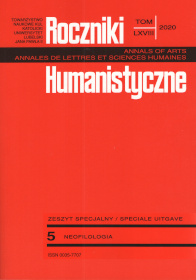The Paradoxal Fight of Esperanto for Tolerance
Abstract
This article investigates the influence of tolerance in the evolution of Esperanto as an artificial language. The idea of tolerance, embedded in the fundamental values of Esperanto, suffered from the social evolution of increasing intolerance. The most important historical factors that contributed to the increasing intolerance towards users of Esperanto are examined.
References
Boulton, Marjorie. Zamenhof. Creator of Esperanto. Routledge and Kegan Paul, 1960.
Brustein, William I. Roots of Hate – Anti-semitism in Europe before the Holocaust. Cambridge University Press, 2003.
Clément, Michel. L’homaranisme. De la sagesse d’Hillel aux Lumières juives. Paris, Ulmus Americana Editio, 2010.
Eco, Umberto. La recherche de la langue parfaite dans la culture européenne. Traduit de l’italien par Jean-Paul Manganaro, Éditions du Seuil, 1994.
Gobbo, Federico. “Beyond the Nation-State? The Ideology of the Esperanto Movement between Neutralism and Multilingualism”. Social Inclusion, vol. 5, nr 4, 2017, pp. 38–47.
Godin, Christian. “Sens de la contre-utopie”. Cités. Philosophie, Politique, Histoire, Utopies, n° 42, 2010, pp. 61-68.
Kim, Young S. Esperanto and Global Identity in Constructing World Culture, International Nongovernmental Organizations since 1875. Stanford University Press, 1999.
Korzhenkov, Aleksander. Zamenhof: The Life, Works and Ideas of the Author of Esperanto. English translation and notes by Ian M. Richmond, ed. Humphrey Tonkin, Mondial in cooperation with Universal Esperanto Association, 2009.
Lins, Ulrich. Die gefährliche Sprache – Die Verfolgung der Esperantisten unter Hitler und Stalin. Gerlingen, Bleicher Verlag, 1988.
Lins, Ulrich. The work of the Universal Esperanto Association for a more peaceful world. Esperanto Documents, 2000.
Madella, Alessandra. “The Light Cloak of the Saint: The Changing Rhetorical Situations of Esperanto’s ‘Internal Idea’ and its Relevance to Contemporary Problems”. Poroi. An Interdisciplinar Journal of Rhetorical Analysis and Invention, vol. 14, nr 2, 2019, article 4. ir.uiowa.edu/poroi/vol14/iss2/4. Geraadpleegd op 4.03.2019.
Oostendorp, Marc van. Een wereldtaal. De geschiedenis van het Esperanto. Amsterdam, Athenaeum – Polak & Van Gennep, 2004.
Redl, Sabina. Verfolgung der Esperanto-Anhänger im Dritten Reich. Stuttgart, Gerlingen, 1988.
Rousseau, André. “Les avatars des projets de langue universelle au tournant du siècle (1880-1930)”. Germanica, vol. 33, 2003, pp. 213-230, journals.openedition.org/germanica/1840. Geraadpleegd op 4.03.2019.
Zamenhof, Ludwig Lejzer. Ĝis la homaranismo 1896-1906, ed. Kanzi Itô, Ludovikito 1990. (Iom reviziita plena verkaro de L. L. Zamenhof. Originalaro 2).
Copyright (c) 2020 Roczniki Humanistyczne

This work is licensed under a Creative Commons Attribution-NonCommercial-NoDerivatives 4.0 International License.





